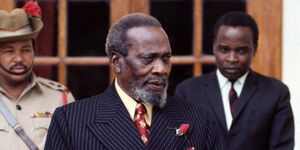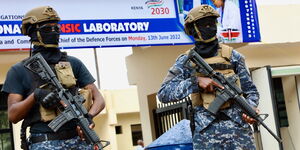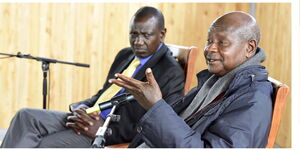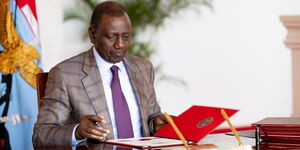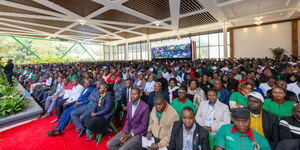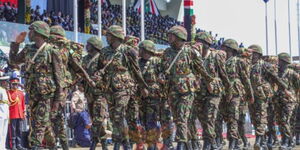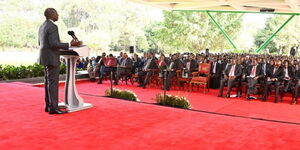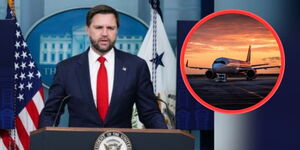The United Nations Security Council has extended Kenya’s peace mission in Haiti by one year, granting the Multinational Security Support (MSS) mission more time to stabilise the Caribbean nation.
Acting under Chapter VII of the UN Charter, the Council extended the mandate to October 2025, citing ongoing security concerns.
Why it matters: The three-month-old mission has been riddled with challenges, and an extension will offer the mission more time to stabilise the Caribean state. On the other hand, it allows room for Haiti to organise elections, which have over the last two decades been contentious.
Dig deeper: Kenya has already committed to sending more officers by January, with President William Ruto reaffirming the country’s commitment during his address to the UN General Assembly. Ruto expressed that while Kenya and other Caribbean and African nations are ready to provide support, they face challenges related to logistics, equipment, and funding.
He called on the international community to assist Haiti, where violent gangs have crippled local authorities and deepened the security crisis.
Changes being proposed: However, the mission’s future structure is now under scrutiny. A US-backed proposal seeks to transform the MSS deployment into a full-fledged UN peacekeeping operation. The draft resolution is expected to be debated on Monday, with the outcome potentially shifting the mission’s mandate and funding structure.
President William Ruto, speaking to VOA, signalled his support for the expansion, but urged that the focus remains on stabilising Haiti, regardless of what form the mission takes.
“Whichever way we go, so long as we deploy the requisite personnel on the ground, mobilise resources necessary, the logistics that are needed for us to do the job in Haiti, my position is that we must focus on making sure that within a year, we see results,” Ruto remarked.
The extension follows calls by Prime Cabinet Secretary Musalia Mudavadi for more time to fully deploy the planned 2,500 officers.
So far, Kenya has only sent 410 officers, leaving a significant gap in the mission’s capacity to fulfil its mandate. Mudavadi emphasised the need for additional troops to combat the influence of gangs that have crippled local governance and deepened Haiti’s security crisis.
Kenya’s involvement, while lauded for its leadership, has not been without challenges. During his address to the UN General Assembly, President Ruto reiterated that Kenya and other African and Caribbean nations remain committed to the mission but are hindered by logistical constraints, inadequate funding, and a lack of necessary equipment.
The international community’s response has been mixed. While the United States recently announced an additional $160 million in aid for Haiti, raising its total assistance to $1.3 billion since 2021, there remains uncertainty over long-term funding.
The proposal to transform the MSS into a UN-mandated mission is aimed at securing a stable financial base, but faces resistance in the Security Council, where China and Russia hold veto power.
Haitian interim Prime Minister Garry Conille, acknowledging the uphill battle, warned that local forces alone are not equipped to defeat the gangs. “We’re nowhere near winning this,” he cautioned, stressing the need for sustained international support to reclaim key areas and restore order.
Big picture: For Kenya, the stakes are high. Success in Haiti could bolster its standing as a regional peacekeeping leader, while failure could damage its reputation. The government is racing to meet its pledge of deploying the remaining officers by January, but concerns remain over whether the mission has the resources to make a lasting impact.

